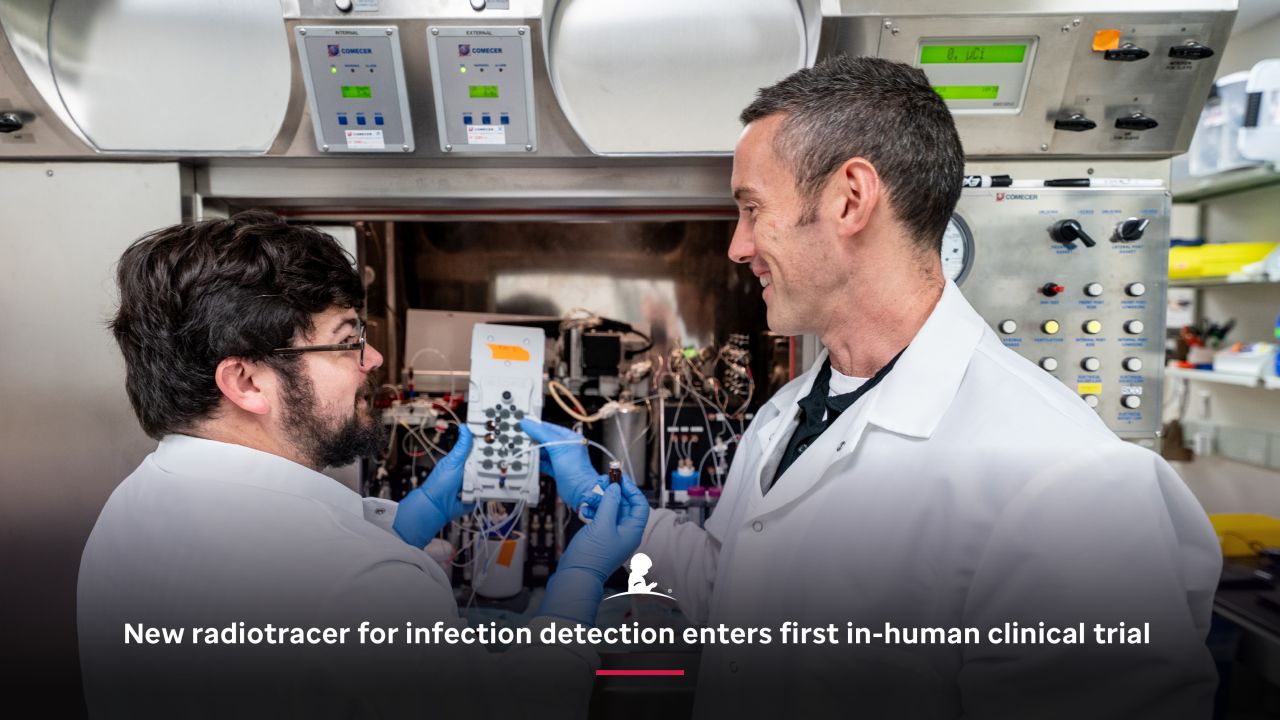St. Jude Children’s Research Hospital shared a post on LinkedIn:
“Kiel Neumann, PhD, of the St. Jude Department of Radiology, has developed a novel radiotracer, [18F]fluoromannitol, which is entering a first-in-human clinical trial.
This PET/CT imaging agent is designed to help clinicians distinguish between inflammation caused by disease processes and bacterial infections, addressing a significant gap in current diagnostic tools for patients with sickle cell disease. The study will utilize a state-of-the-art, full-body PET/CT scanner, further enhancing imaging capabilities for this research.

Neumann explains:
‘As a chemist, this area of study was interesting because antibiotics are often given prophylactically because of unclear diagnostic test results. [18F]fluoromannitol’s ability to accumulate only in bacteria indicated it to be a sensitive bacterial imaging agent worthy of further investigation.’
The clinical need is clear. When a child with sickle cell disease arrives at the hospital in pain, physicians must determine whether the pain is due to a vaso-occlusive crisis – when blood flow in small vessels becomes blocked by sickled red blood cells – or a bacterial bone infection such as osteomyelitis. Biopsies may not provide enough information and conventional scans show anatomy but not the cause of inflammation.
Amanda Green, MD, St. Jude Department of Infectious Disease, partnered with Neumann to help guide the radiotracer’s development toward clinically relevant bacteria, aiming to improve diagnostic accuracy for this vulnerable population.

If successful, [18F]fluoromannitol could advance the specificity of PET/CT imaging, allowing clinicians to avoid unnecessary invasive procedures and provide more targeted care. The results of the current trial will inform future studies in pediatric patients with sickle cell disease, potentially reshaping infectious disease detection and management.
More posts featuring St. Jude Children’s Research Hospital.


